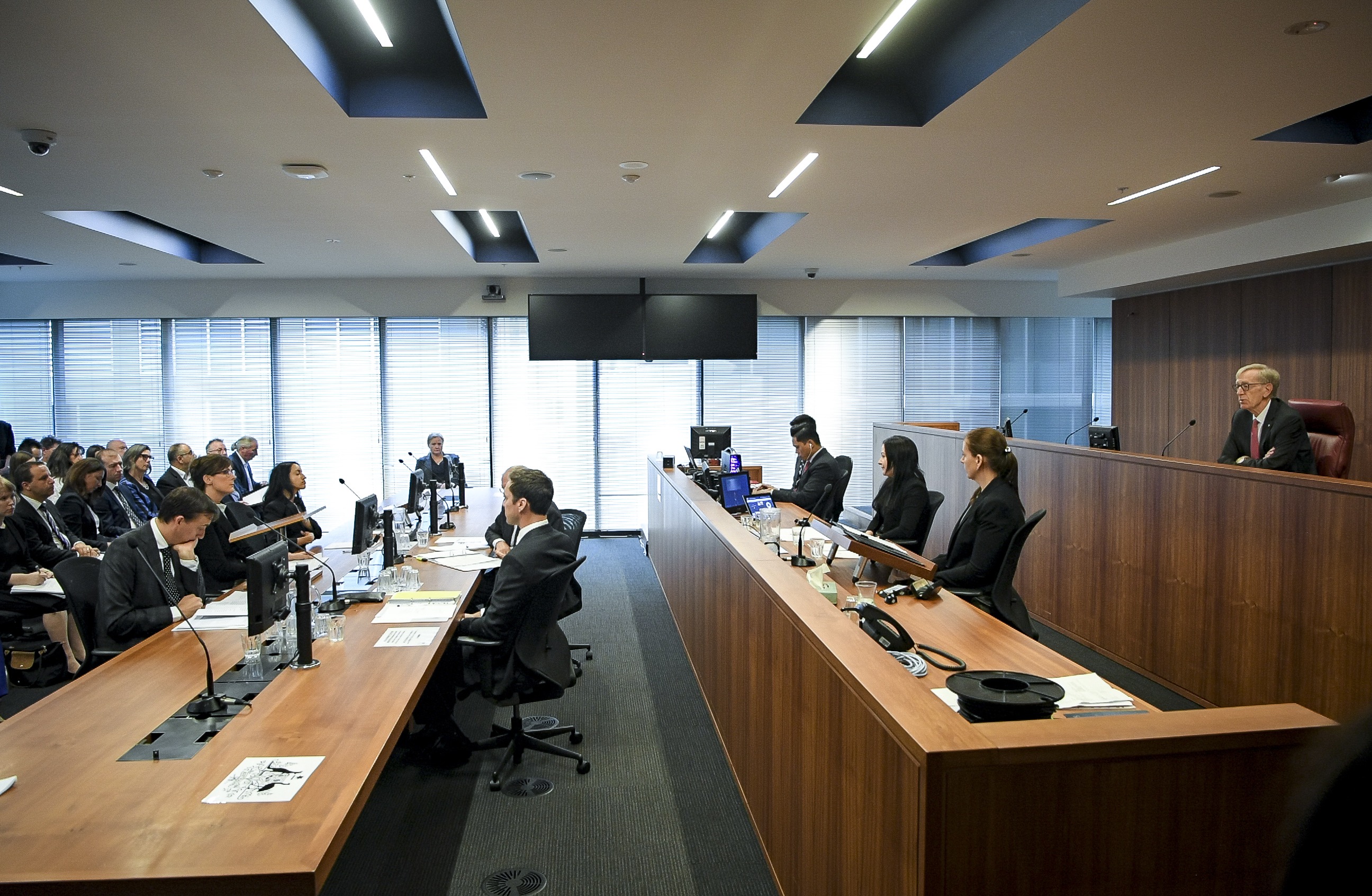
Politics & Society
Discrimination in a pandemic

The slippery concept of corporate guilt too often allows companies off the hook. The law needs reforming
Published 13 May 2020
There is a real problem in the law when it comes to making criminal charges and serious civil wrongs like fraud, stick against large corporate defendants – corporations don’t have minds.
Around the world, corporations have been strongly implicated in numerous environmental, health, economic and social harms but have rarely been held to account through the courts. And where penalties are sought, or have been awarded, they often don’t seem to reflect the gravity of the offence.

There are many reasons for this, but a key reason is that the law generally requires proof of a highly blameworthy state of mind on the part of the company. That is, prosecutors need to prove that the company intended, knew, or was reckless about certain misconduct, or was dishonest or predatory in its commercial activities.
Unfortunately, it is very difficult to prove a guilty corporate ‘state of mind’ when arguably there isn’t a mind – at least not in the sense a human has a mind.

Politics & Society
Discrimination in a pandemic
It is a problem that was made clear in the findings of last year’s Banking Royal Commission into scandalous misconduct in the finance sector. And it is a potential issue for the criminal investigations into the Ruby Princess cruise ship incident.
Among key legal questions will be what the ship operator Carnival Cruises ‘knew’ about potential COVID-19 cases before thousands of passengers were allowed to disembark in Sydney on March 19. This is called the problem of ‘attribution’ of the corporate ‘state of mind’.
The law treats companies as artificial ‘legal persons,’ even though companies don’t truly have ‘minds’ to think, or ‘bodies’ to act, in the same way as actual people. Companies must act through directors, managers, employees and other agents – many of these being other corporations.
Faced with this reality, the law has traditionally taken the idea of corporations being ‘artificial’ people very seriously. It treats the directors and senior executives of a company as its ‘directing mind and will’ and lower-level employees and agents as being its arms and legs. On this approach, if the law requires proof of a guilty mind, that guilt must be found in the minds of the humans who control the company.

When dealing with small companies, this approach works fine. But it is hugely problematic when dealing with the reality of modern, complex corporations.
As the Banking Royal Commission heard (detailed at [6.3.1] of its report), too often the directors and senior managers of large and powerful corporates confess to having little idea or control over what is being done day-to-day on the ground, in their company. And the low-level employees and agents often don’t know how their tasks connect to others in their department or section, and how the different sections of the corporation work together.

Sciences & Technology
The privacy paradox: Why we let ourselves be monitored
It is difficult to connect the dots.
In many cases, the real problem isn’t what any one person did, knew or intended, but that the corporation’s overall systems, policies and procedures were highly flawed and inherently likely to encourage or result in misconduct. Possible examples include the ‘fees for no services’ and charging of dead people scandals laid bare by the Banking Royal Commission.
All in all, the traditional approach of the law to corporate attribution provides the perfect conditions for large corporations to structure themselves to avoid serious criminal and civil responsibility. Corporations can deny knowledge and lay the blame on ‘administrative mistakes’ or ‘systems errors’.
Despite the Banking Royal Commission’s withering criticism, this is, in general, a successful strategy for corporations to follow, often leading to less damage to reputation and lower penalties.

This may yet change. The Australian Law Reform Commission (ALRC) was tasked to look at reforming this area as part of its inquiry into Corporate Criminal Responsibility, the report of which was submitted to the Attorney-General on April 29. Although it may be understandable that the Government hasn’t yet released the report or its response to it, there should be no doubt about the urgency of the problem. The rules of the corporate blame game can and must change.
So far, courts have made efforts to expand the mental attribution rules beyond the ‘directing mind and will’. While they are improvements on the traditional approach, these approaches still require that some human, somewhere, had the relevant mental state and that this state of mind can properly be attributed to the company.

Politics & Society
Are our new virtual workplaces equitable?
Governments have also introduced a series of different, more expansive statutory attribution rules, which apply in different ways in different circumstances, often using quite conflicting strategies. This complexity hasn’t helped. The ALRC’s interim discussion paper has already ‘mapped’ the huge number and varieties of attribution rules currently in existence. It reinforces the point that something needs to change.
One model the ALRC may usefully draw on is Part 2.5 of the Criminal Code that embraces a more radical conception of organisational fault, expressed in what have become known as the ‘corporate culture’ provisions.
This breakthrough approach takes seriously the idea that corporations develop their own character and values and should be treated as actors in our society in their own right. It pays attention to the policies, processes and systems of companies, rather than only to the acts and minds of individual employees.
Recognising corporate culture doesn’t deny that individuals, like directors and senior employees, can and should be held personally responsible where appropriate. But it reflects the reality of our modern experience that corporations can and do wield immense power, enjoy immense benefits and can cause immense harm in our society and that, sometimes, it is the corporation itself that should be held responsible.

After all, the employees carrying out corporate activities frequently change, transfer and are replaced, and are often following existing corporate policies and processes.
Despite their attractions, the corporate culture provisions have problems. They have very rarely been used and have been excluded from many important areas. They don’t apply to state criminal laws and have never been fully considered by courts. As a result, there is significant uncertainty over how they will operate in practice.

Business & Economics
Is our trust in banking restored?
For example, how does one prove what Banking Royal Commissioner Kenneth Hayne described as “what people do when no one is watching”?
Some evidence of corporate culture may be relatively easy for prosecutors and regulators to find – there may be minutes, memoranda, training manuals, policy documents and so on. But official policy may be a world away from the reality of what occurs on the ground.
Notwithstanding these difficulties, the idea of corporate culture remains a powerful one. For example, courts commonly take corporate culture, like compliance checks and training programs, into account when fixing civil penalties.
What remains clear is that, both in the wake of the Banking Royal Commission and in the tumult of COVID-19, it has never been more important to find better ways of holding corporations to account.
Banner: Getty Images